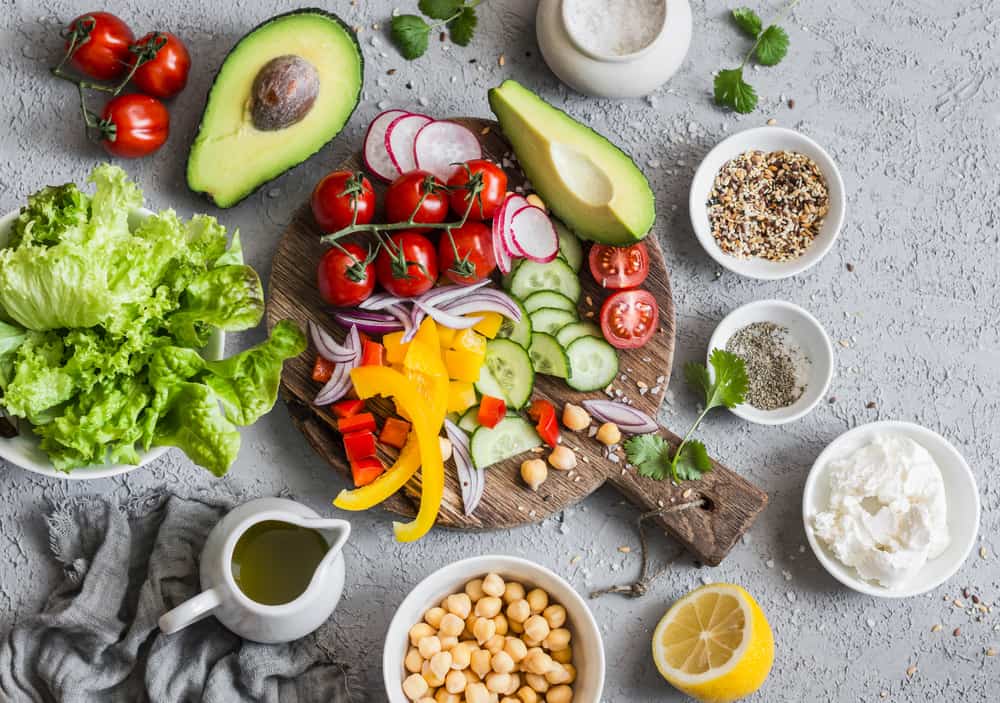Contents:
- Medical Video: How To Test Blood Sugar | How To Use Glucometer | How To Check Blood Glucose | (2018)
- What is the glycemic index?
- Some examples of glycemic index values in food
- What can affect the glycemic index in food?
Medical Video: How To Test Blood Sugar | How To Use Glucometer | How To Check Blood Glucose | (2018)
A high carbohydrate diet is one of the main risk factors for diabetes. This is becausemost eat carbohydrate foods can increase blood sugar levels. To control blood sugar levels, many people use the glycemic index as a guide to choosing the right foods in their daily diet.
What is the glycemic index?
The glycemic index is a numerical score in the form of a scale from 0-100 which shows how fast the food is converted to glucose by the body. The glycemic index can also tell you how food affects your blood sugar and insulin levels.
For example, pure sugar has a 100 glycemic score. This means that carbohydrates in pure sugar are very quickly converted by the body into blood sugar for energy for the body.
The higher the glycemic value of a food, the greater the effect on changes in insulin levels and blood sugar. If you eat high glycemic-value foods, your blood sugar levels will increase faster than those with lower GI values.
Two different types of food with the same amount can have different glycemic index values. That is why people who tend to have high blood sugar or have been diagnosed with diabetes need to be more careful in selecting foods so that blood sugar remains stable.
Some examples of glycemic index values in food
The glycemic index is grouped into:
- <55: low
- 56-69: moderate
- > 70: high
Foods with a low glycemic index:
- Soybeans (16)
- Barley (28)
- Carrots (34)
- Full-fat milk (38)
- Apples (36)
- Dates (42)
- Orange (43)
- Banana (50)
- Soun
- Egg noodles
- Corn
- Macaroni
- Whole wheat
Foods with a moderate glycemic index:
- Sweet Corn (52)
- Pineapple (59)
- Honey (61)
- Ubi (63)
- Pumpkin (64)
Foods with a high glycemic index:
- Rice crackers (87)
- Boiled Potatoes (78)
- Watermelon (76)
- White Bread (75)
- White rice (73)
- Corn cereal /cornflakes (81)
- Sugar (100)
What can affect the glycemic index in food?
Not that you are prohibited from consuming foods with a high glycemic index and may eat as many foods with a low glycemic index as much as possible. Because, how a food affects the body's blood sugar is influenced by many factors, such as portion, texture, thickness of food, and the level of maturity.
For example, you eat 1 small piece of sweet cake with a glycemic index of 150, so you will eat 3 bananas with a 50 glycemic index. So, consider the portion of food you eat.
The cooking method used to process food also affects the glycemic index. Foods that are cooked very well with a smooth and small texture will be more easily absorbed by the body, so it will affect blood sugar faster. In addition, the temperature of the food also affects. Cold rice has a lower glycemic index than warm rice.
To work around this, you might be able to combine foods with a high glycemic index and foods with a low glycemic index. For example, consumingcornflakes who have a glycemic value of 81 (high) along with milk that has a glycemic index of 38 (low). This method can reduce the effect of these foods on blood sugar levels. Fat, protein, and fiber can help reduce the effect of food on blood sugar.
What should be considered, planning a diet follows the principle of glycemic valuequite complicated and difficult to follow. Many health experts conclude that there are no fixed standards for what is considered low, medium and high. For example, most packaged foods do not include the value of their glycemic index on the label so that consumers who want to consume cannot find out. However, doctors can use the glycemic index as a tool combined with the patient's diet planning system.
In short, there is no diet pattern that can be applied to all diabetics. Everyone needs a special diet that is adjusted for body composition, lifestyle, and health conditions. For more information, you should find a dietitian or doctor to help you achieve the right amount of blood glucose, cholesterol, triglycerides, blood pressure, and weight management.












